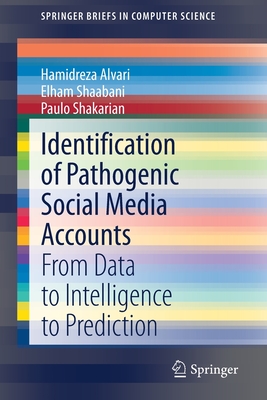Social Engineering: How Crowdmasters, Phreaks, Hackers, and Trolls Created a New Form of Manipulativ E Communication
暫譯: 社會工程:群眾大師、電話駭客、黑客與網路惡搞者如何創造出一種新的操控性溝通形式
Gehl, Robert W., Lawson, Sean T.
- 出版商: Summit Valley Press
- 出版日期: 2022-03-08
- 售價: $1,290
- 貴賓價: 9.5 折 $1,225
- 語言: 英文
- 頁數: 344
- 裝訂: Quality Paper - also called trade paper
- ISBN: 0262543451
- ISBN-13: 9780262543453
-
相關分類:
駭客 Hack
海外代購書籍(需單獨結帳)
相關主題
商品描述
Manipulative communication--from early twentieth-century propaganda to today's online con artistry--examined through the lens of social engineering.
The United States is awash in manipulated information about everything from election results to the effectiveness of medical treatments. Corporate social media is an especially good channel for manipulative communication, with Facebook a particularly willing vehicle for it. In Social Engineering, Robert Gehl and Sean Lawson show that online misinformation has its roots in earlier techniques: mass social engineering of the early twentieth century and interpersonal hacker social engineering of the 1970s, converging today into what they call "masspersonal social engineering." As Gehl and Lawson trace contemporary manipulative communication back to earlier forms of social engineering, possibilities for amelioration become clearer. The authors show how specific manipulative communication practices are a mixture of information gathering, deception, and truth-indifferent statements, all with the instrumental goal of getting people to take actions the social engineer wants them to. Yet the term "fake news," they claim, reduces everything to a true/false binary that fails to encompass the complexity of manipulative communication or to map onto many of its practices. They pay special attention to concepts and terms used by hacker social engineers, including the hacker concept of "bullshitting," which the authors describe as a truth-indifferent mix of deception, accuracy, and sociability. They conclude with recommendations for how society can undermine masspersonal social engineering and move toward healthier democratic deliberation.
The United States is awash in manipulated information about everything from election results to the effectiveness of medical treatments. Corporate social media is an especially good channel for manipulative communication, with Facebook a particularly willing vehicle for it. In Social Engineering, Robert Gehl and Sean Lawson show that online misinformation has its roots in earlier techniques: mass social engineering of the early twentieth century and interpersonal hacker social engineering of the 1970s, converging today into what they call "masspersonal social engineering." As Gehl and Lawson trace contemporary manipulative communication back to earlier forms of social engineering, possibilities for amelioration become clearer. The authors show how specific manipulative communication practices are a mixture of information gathering, deception, and truth-indifferent statements, all with the instrumental goal of getting people to take actions the social engineer wants them to. Yet the term "fake news," they claim, reduces everything to a true/false binary that fails to encompass the complexity of manipulative communication or to map onto many of its practices. They pay special attention to concepts and terms used by hacker social engineers, including the hacker concept of "bullshitting," which the authors describe as a truth-indifferent mix of deception, accuracy, and sociability. They conclude with recommendations for how society can undermine masspersonal social engineering and move toward healthier democratic deliberation.
商品描述(中文翻譯)
操控性溝通——從二十世紀初的宣傳到今天的網路詐騙——透過社會工程的視角進行檢視。
美國充斥著關於從選舉結果到醫療療效等各種議題的操控資訊。企業社交媒體特別適合進行操控性溝通,其中 Facebook 更是這種溝通的熱衷載體。在社會工程一書中,Robert Gehl 和 Sean Lawson 展示了網路錯誤資訊的根源在於早期的技術:二十世紀初的大眾社會工程和1970年代的人際駭客社會工程,今天這些技術匯聚成他們所稱的「大眾個人社會工程」。隨著 Gehl 和 Lawson 將當代的操控性溝通追溯到早期的社會工程形式,改善的可能性變得更加明朗。作者展示了具體的操控性溝通實踐是信息收集、欺騙和對真相漠不關心的陳述的混合,所有這些都是為了達成社會工程師希望人們採取的行動。然而,他們聲稱「假新聞」這個術語將一切簡化為真/假二元對立,無法涵蓋操控性溝通的複雜性或映射到其許多實踐上。他們特別關注駭客社會工程師使用的概念和術語,包括駭客所謂的「胡說八道」概念,作者將其描述為一種對真相漠不關心的欺騙、準確性和社交性的混合。他們最後提出建議,說明社會如何能夠削弱大眾個人社會工程,並朝向更健康的民主討論邁進。作者簡介
Robert W. Gehl is F. Jay Taylor Endowed Research Chair of Communication at Louisiana Tech University and the author of Weaving the Dark Web (MIT Press). Sean T. Lawson is Associate Professor of Communication at the University of Utah, Non-Resident Fellow at the Brute Krulak Center for Innovation & Future Warfare at the Marine Corps University, and author of Cybersecurity Discourse in the United States.
作者簡介(中文翻譯)
羅伯特·W·蓋爾是路易斯安那科技大學的F·傑伊·泰勒傳播研究講座教授,也是《編織黑暗網路》(MIT Press)的作者。肖恩·T·勞森是猶他大學的傳播副教授,海軍陸戰隊大學布魯特·克魯拉克創新與未來戰爭中心的非駐留研究員,以及《美國的網路安全話語》的作者。











